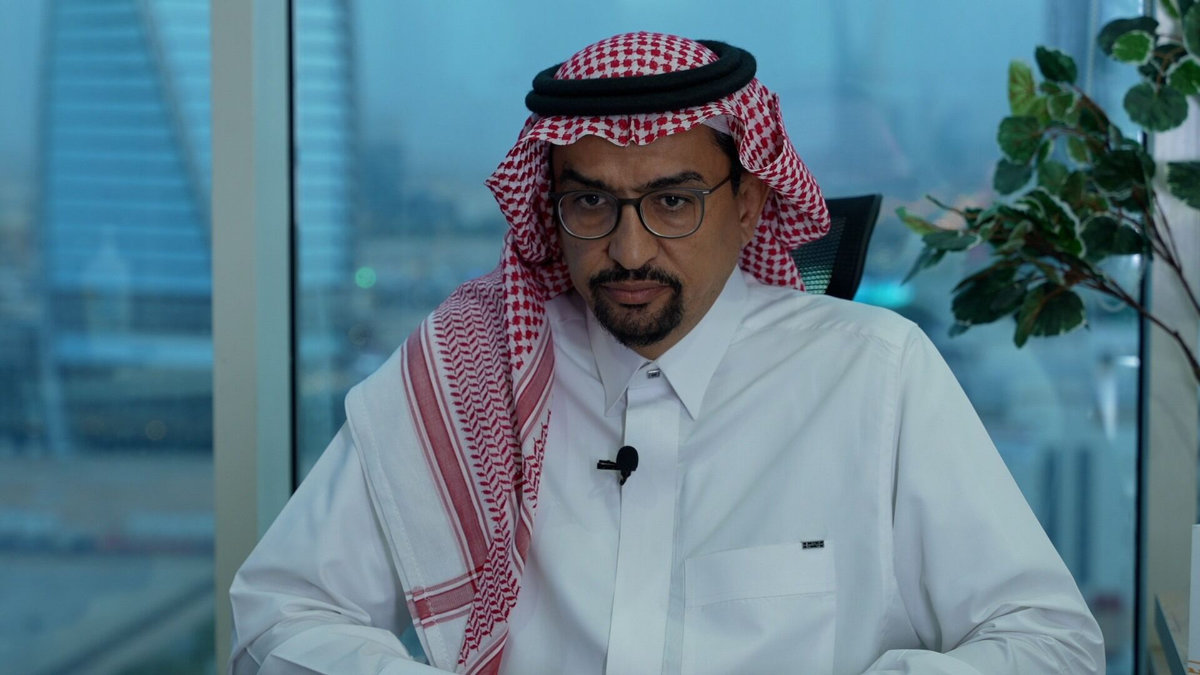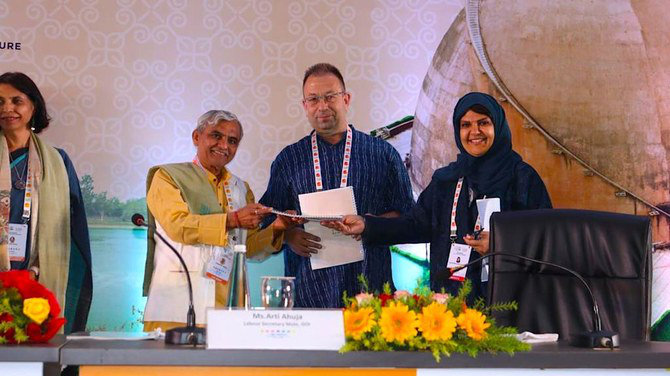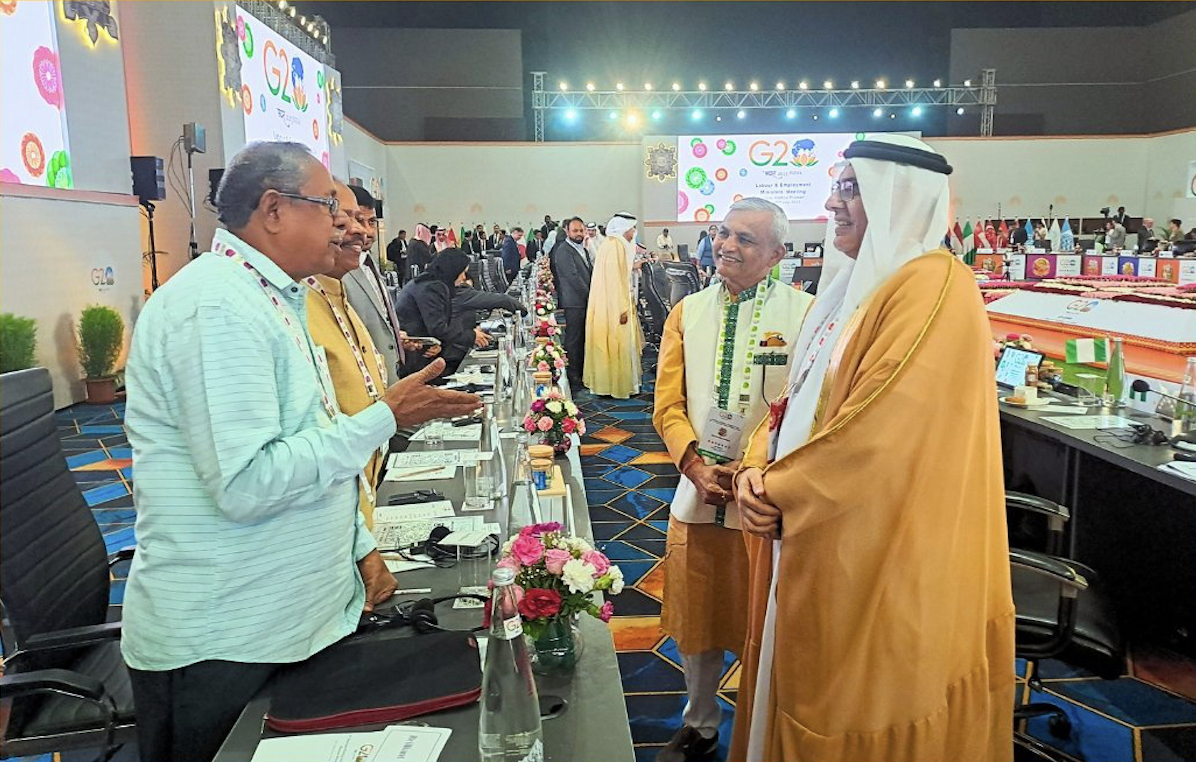RIYADH: As the Indian capital New Delhi hosts the Group of 20 leaders’ summit, expectations are high among delegates that world leaders will achieve consensus on a forward-looking approach to common challenges and issues, including workers’ rights.
Speaking to Arab News, Nasser Al-Jaryad, Saudi Arabia’s representative to the Labour 20 and chairman of the Saudi National Committee of Workers Committees, said he hopes world leaders will take the L20’s recommendations on board.
“As we know, the G20 summit is a big platform where important issues are discussed by leaders,” said Al-Jaryad ahead of the two-day summit, which opens in New Delhi on Saturday.
“There are big challenges, especially from our side, for workers all over the world, and we as L20 representatives are looking forward to this summit considering all the issues of workers and addressing our concerns regarding the future of the economy and what is impacting workers.
“That’s why we are looking forward to all the recommendations. We send them directly to the leaders and we hope all of our recommendations will be considered in the final communique.”

Nasser Al-Jaryad, Saudi Arabia’s representative to the Labour 20 and chairman of the Saudi National Committee of Workers Committees. (AN photo)
The L20 is a group of unions from G20 countries that aims to ensure the G20 process takes into account the interests and needs of workers. After a series of meetings and consultations earlier this year, the L20 presented a set of recommendations to world leaders.
Its key objectives include promoting job creation, strengthening social protections, ensuring the protection of workers’ rights and promoting gender equality in the workplace. The L20 also advocates for fair and decent wages, safe and healthy working conditions and the elimination of forced and child labor.
Al-Jaryad participated in the L20 summit in Patna, a city in northeast India, in June, where delegates agreed on a multilateral mechanism among G20 member states and associated countries to establish five task forces to address key issues related to the world of work.

Dr. Rimah Saleh Al-Yahya, right, Saudi representative to Labor 20 Summit in Patna, India, poses with other delegates to the G20 working group on June 23. (Photo courtesy of G. Vijayeshwar)
These included universal social security, women and the future of work, international migration and the portability of social security benefits, the changing world of work, and skill development.
“All of these recommendations coming from us will be considered in the final discussion and the leaders’ summit,” he said.
Al-Jaryad believes the theme of this year’s G20 summit, “One Earth, One Family, One Future,” should be understood as a call for closer cooperation, not only between nations but within societies, where the needs of working people are occasionally overlooked.
“It gives us a message that we need to think together and try to have a solution for this issue, especially the economic issue, which is impacting all of us in the world, especially the workers, who we think are a weaker section overall in many countries, especially the poor countries and African countries,” he said.

L20 delegation met with UAE's Minister for Labor & Employment. (Twitter/L20)
“We never forget anyone and do not want to leave anyone behind. We want to cover all of the needs of this workers’ group. This is what we concentrated on during the discussion in all our meetings of the L20 in 2023 when we started our meeting in India.
“We concentrated on the impact on workers … This is what we need to mention to the leaders, and we hope this summit will cover all of that and think about what we can build in our future, how we can create jobs, how we can cover all of this loss. This is mentioned in our recommendation.”
The global economy has been buffeted in recent years by numerous crises, first by the lockdowns of the COVID-19 pandemic, followed by the ripple effect of the war in Ukraine, which has contributed to inflation in the prices of food and energy.
The effects of these crises have fallen disproportionately on the shoulders of the world’s workers and poorest, who have seen the price of borrowing rise, the cost of living inflate, and the availability of jobs evaporate, forcing millions more worldwide below the poverty line.
Added to this are anxieties over the impact of new technologies on many manual and clerical jobs, with advances in automation and artificial intelligence poised to replace human workers in many fields.
“We already discussed it in the last L20 summit in June, in which we mentioned very clearly that we need a very strong future plan to cover all of this loss,” said Al-Jaryad.
As the only Arab country among the G20 member states, Saudi Arabia is uniquely placed to act as an ambassador for the wider interests of the Gulf region, particularly in relation to the oil and gas industries, Al-Jaryad said.
“Saudi Arabia is one of the biggest countries in the G20, and as we know, it is the only one from the Arab world and the Gulf,” he said. “We are sure all of these recommendations on the decisions from this summit will impact all of the economies of the Gulf.
“That’s why we think all of the ideas that we discussed as a Saudi representative should be considered (as coming) from the region, and all the recommendations to be issued from the summit should consider this.
“We, all of the Gulf countries, are petroleum-producing countries. All the decisions for the global economy will impact the petroleum-producing countries too …
“We need to know how we can plan our future for our workers and our countries and how we can meet all of these targets to have a strong future for our economies.”
Finally, Al-Jaryad noted that Saudi Arabia and India share very cordial relations, which are set to develop further in the wake of India’s G20 presidency.
“As we know, India is the seventh largest trading partner of Saudi Arabia. This will have a very strong impact especially in the economy and on how we can strengthen relations between India and the Kingdom,” he said.
“India is the fifth largest investor in the Kingdom, which means it is one of the biggest trading partners (with) an investment in Saudi Arabia.
“We know there are many Indian workers in Saudi Arabia. They helped build many of our projects and supported development. The G20 summit will really strengthen our relations and economies.”





























